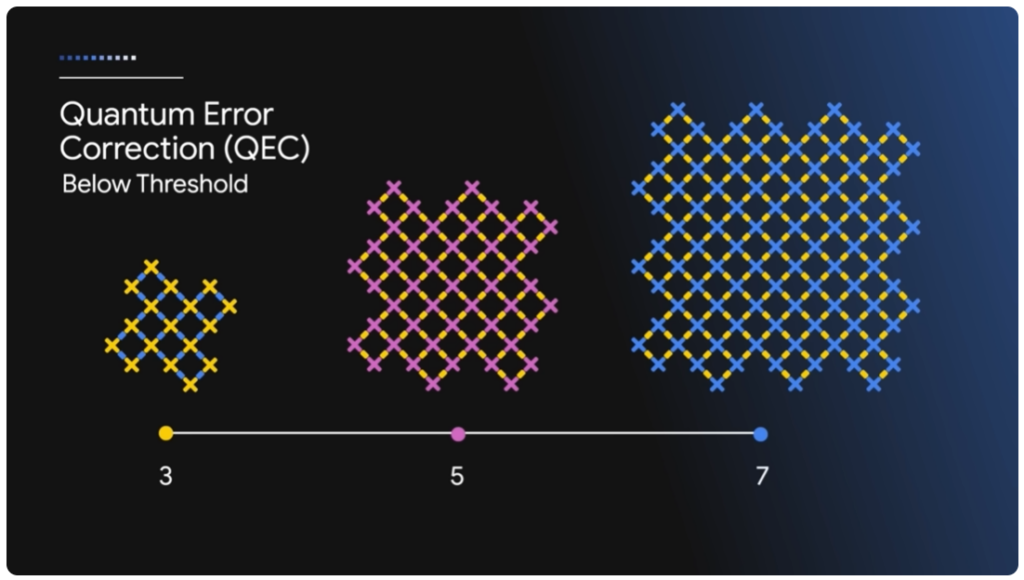Introduction
Imagine a world where computers solve problems so complex that they make today’s supercomputers look like pocket calculators. Enter the Google Willow quantum chip, a groundbreaking leap in technology that promises to transform how we tackle some of the most challenging computational tasks. But what exactly is this quantum marvel, and why is it causing such a stir in the tech world?

Understanding Quantum Computing
Before diving into the specifics of the Willow chip, let’s take a moment to understand quantum computing itself. Unlike classical computers that use bits (0s and 1s), quantum computers use qubits, which can represent both 0 and 1 simultaneously due to a phenomenon known as superposition. This allows quantum computers to process vast amounts of data at once, making them incredibly powerful for certain types of calculations.
The Google Willow Quantum Chip
What is the Google Willow Quantum Chip?
The Google Willow quantum chip is Google’s latest advancement in quantum computing technology. It features 105 qubits and is designed to perform computations exponentially faster than traditional supercomputers. This chip is part of Google’s broader strategy to lead in quantum research and applications.
How does the Willow chip improve quantum computing?
The Willow chip improves quantum computing by significantly reducing error rates through advanced error correction techniques. This capability allows it to maintain stable and reliable performance even as more qubits are added.
How many qubits does the Willow chip have?
The Willow chip boasts 105 qubits, which are essential for performing complex computations efficiently.
What are the main advantages of the Willow chip over previous models?
The main advantages of the Willow chip include its enhanced error correction capabilities and its ability to perform computations that would take classical supercomputers an unimaginable 10 septillion years in just five minutes. This performance surpasses previous Google quantum processors like Sycamore.
Key Features and Innovations

Quantum Error Correction
Quantum error correction is crucial for making quantum computing viable for real-world applications. The Willow chip implements real-time error correction, ensuring stable performance as computations become more complex with additional qubits.
Superconducting Qubits
Willow utilizes superconducting transmon qubits, which operate at ultra-low temperatures to minimize disturbances that could lead to errors during computations.
Real-World Applications
Potential Applications of the Willow Chip
The potential applications of the Willow chip span various fields:
- Artificial Intelligence: Enhanced computational capabilities could lead to breakthroughs in machine learning algorithms.
- Medicine: Quantum computing may facilitate drug discovery by simulating molecular interactions more efficiently.
- Energy Systems: Applications in battery chemistry and fusion energy research could benefit from improved computational models.
Comparing Performance
How does the performance of the Willow chip compare to classical supercomputers?
In benchmark tests, Willow demonstrated its extraordinary capabilities by solving a standard computational task in less than five minutes—a task that would take one of today’s most powerful supercomputers approximately 10 septillion years. This performance not only surpasses previous Google quantum processors but also showcases the potential for practical applications in various fields.
Conclusion
In summary, Google’s Willow quantum chip represents a monumental leap forward in quantum computing technology. By overcoming significant challenges related to error rates and computational speed, it positions Google at the forefront of a technological revolution that could transform industries reliant on complex data processing and problem-solving. As we look to the future, the possibilities seem as limitless as the universe itself.
Call-to-Action
Curious about how quantum computing might impact your industry or daily life? Stay tuned for more updates on this exciting technology, and consider exploring how you might integrate these advancements into your own work or business strategies.




